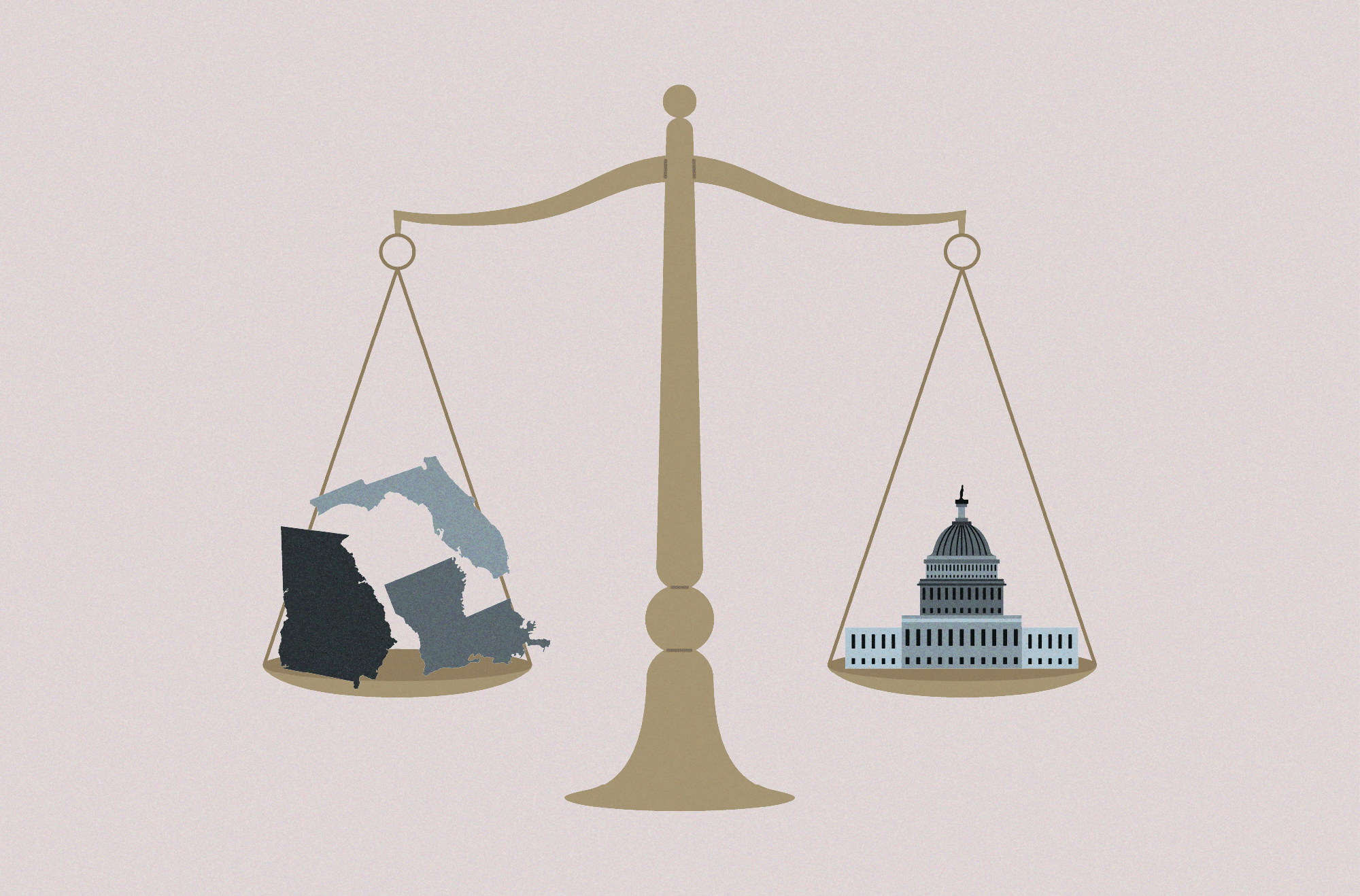
States Show the Way on Tort Reform

I’m a procrastinator.
When I’m putting off doing something (like writing this column), one of my distraction techniques is online surfing for excesses of lawsuit abuse. For some twisted reason, I find it entertaining to work myself up in a mad rage at trial lawyers.
Good sources include the American Tort Reform Foundation (it coined the term Judicial Hellholes—jurisdictions in which judges apply the law in an “unfair and unbalanced manner”) and the U.S. Chamber of Commerce’s Institute for Legal Reform (ILR), as well as our industry’s Insurance Information Institute and the American Property Casualty Insurance Association.
Remember how big a story it was in 1994 when a spilled cup of coffee at a McDonald’s resulted in a nearly $3 million verdict for punitive and compensatory damages?
In 2025, a cup of hot tea came loose from its cardboard container in a delivery driver’s lap, inflicting serious third-degree burns that required skin grafts, and Starbucks lost a $50 million verdict in a California court. The plaintiff’s legal team had reportedly already turned down a $30 million settlement offer before jury deliberations. News reports say the total costs now could rocket to $60 million— and at least one similar lawsuit has already been filed against Starbucks.
That $50 million cup of tea? Google it and watch the video of the Starbucks carryout employee. It’s impossible to tell that she didn’t properly put the lid on the cup and the cup in the holder before passing it to the future plaintiff.
Thanks to an invitation from Cottingham & Butler Senior Vice President Kim Beck, I recently spoke to the leadership of the National Tank Truck Carriers association. The trucking industry faces an enormous liability crisis in the face of threats including rising accident verdicts, especially for those driving fuel or hazardous materials. It was depressing not to be able to report to these leaders that help would be on the way from a GOP-controlled Washington.
Through most of my career as a lobbyist, I’ve been pleased that most of The Council’s issues aren’t necessarily partisan. We have good friends across the political spectrum who help advance our advocacy agenda. But on legal reform issues, Democrats are wholly co-opted by the plaintiffs’ bar, along with enough Republicans (particularly in certain states) to prevent reform. It’s worth noting, too, that President Donald Trump has been the plaintiff in more than 4,000 lawsuits.
One area of legal reform begs to be addressed by policymakers at the federal and state levels: third-party litigation funding (TPLF), which allows hedge funds and other financiers to invest in lawsuits in exchange for a percentage of any settlement or judgment. The practice started in Australia, according to the ILR, expanded to Europe and the United States, and is now spreading elsewhere. “Without disclosure requirements and other commonsense safeguards, these funders may take over litigation and fuel unmeritorious lawsuits,” says the ILR, which estimates that lawsuit abuse costs the average U.S. household $4,200 annually.
I find it appalling that hedge funds, foreign governments, sovereign wealth funds, and even oligarchs can invest in legal actions against American corporations, and there is no disclosure to juries. Think of the intellectual property rights alone.
I hope Congress will ultimately address the abuses of TPLF. Broader tort reform, though, will have to come through the states.
State Reforms
On that front, there are some encouraging signs. By the time you read this, Georgia Gov. Brian Kemp will have signed a sweeping plan to limit lawsuits—potentially removing his state’s unfortunate designation as a leading Judicial Hellhole. The measure isn’t perfect, but it should mark a massive improvement.
The Georgia bill, as the American Tort Reform Association notes, has a core provision limiting phantom damages—awards based on inflated medical bill amounts that were never paid. It also raises the bar for lawsuits alleging premises liability, which have left businesses responsible for criminal acts committed by third parties on or near their property—even if they had no way to predict or prevent such acts.
The 2023 Florida tort reform overhaul, championed by Gov. Ron DeSantis, similarly addressed businesses having to pay massive damages when they are not primarily at fault. (Previously, trial lawyers could pressure businesses to settle lawsuits even when the plaintiff was 99% at fault for an injury.)
Florida’s reform also eliminated one-way attorney fee shifting, which had allowed plaintiffs’ lawyers to recover fees without paying defendants’ costs after filing abusive lawsuits. It also limited the ability of lawyers to inflate their costs rather than charge based on the time they actually spent on a case and required lawyers to prove that insurers actually behaved improperly before demanding more money than an insurance policy allows.
Trial lawyers rushed to file more than 100,000 (!) lawsuits just before the law was enacted, and those are grinding their way through the courts.
Louisiana is another Hellhole, where many efforts to achieve progress have been stymied, even by Republican Gov. Jeff Landry.
In my 35+ years in the insurance industry, we have always raised lawsuit abuse (we’ve moved away from the term “social inflation”) as a primary source of higher insurance costs. With exceptions in a few jurisdictions, the problems have gotten worse, not better.
The industry is more determined than ever to press hard on the issue in coming months and years. There is also a growing cognizance among carriers that those closest to the customers—i.e., the brokers—are well situated to carry the message. Over the years, I’ve heard the argument that this is an insurer issue, and that brokers should keep their distance. If that’s the case, why should we care about severe weather events? How can we purport to represent our clients’ interests without engagement on these critical cost issues?
Expect to hear much more from us, and when you do, please engage.




